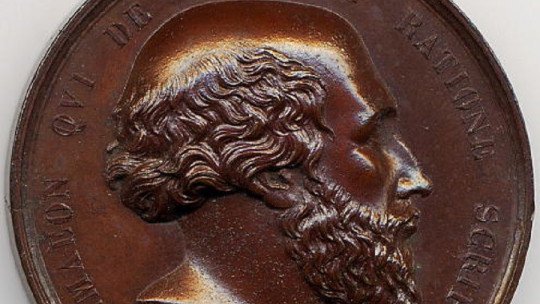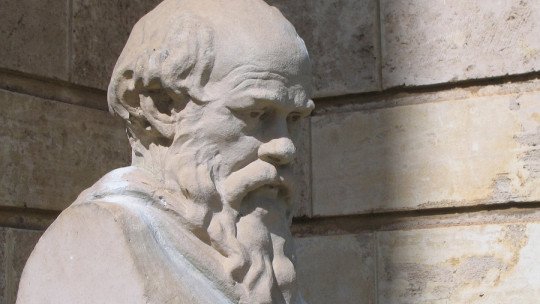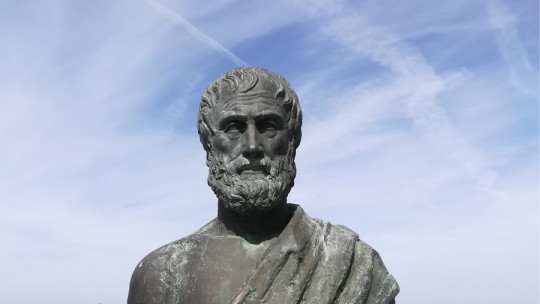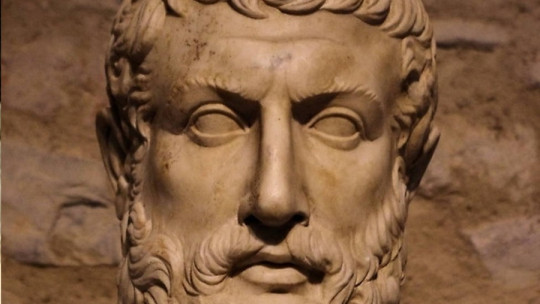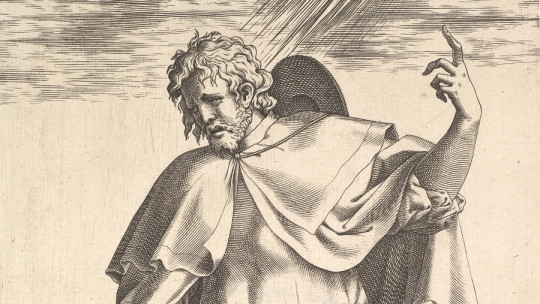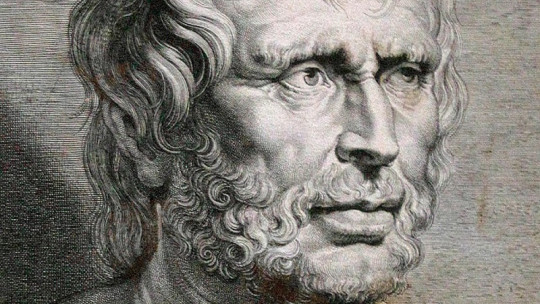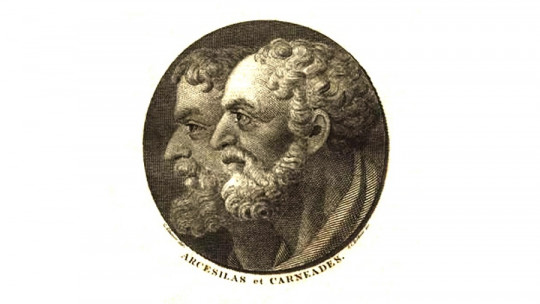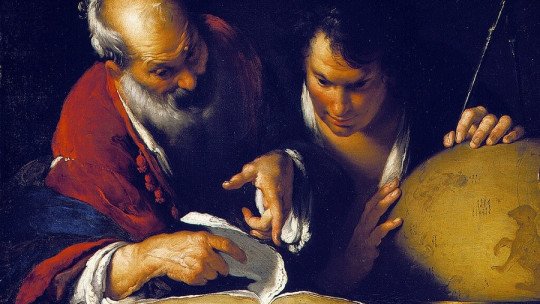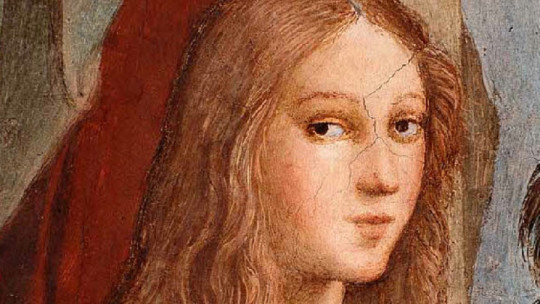Alcmaeon of Crotona is one of the many enigmas posed by Greek philosophy , since we do not know most of his life history. As often happens, what (little) we know about him we know through the writings of third parties; in this case, from Aristotle, who mentions it several times in his work and says that, when Alcmaeon was still a young man, Pythagoras was already old.
Indeed, Alcmaeon was born and lived in Crotona, a city that was part of Magna Graecia and which witnessed the birth of one of the most notable movements of Hellenic thought: the Pythagoreans.
Regardless of whether or not Alcmaeon belonged to this group, the truth is that his theory about the soul is strongly influenced by the philosophy of the followers of Pythagoras. According to him, the soul is immortal because it finds, like the stars, in continuous and eternal movement, the essential characteristics of divine things.
Let’s look at the career of this unique doctor-philosopher who belonged to the Croton School of Medicine and who was, according to tradition, the first Greek who dissected corpses to study their anatomy.
Brief biography of Alcmeon of Crotona, the first Greek to dissect corpses for study
Everything in Alcmeon’s life is a mystery. We know that he was a native of Crotona, a city located in the so-called Magna Graecia (southern Italy), which consisted, around the 6th and 5th centuries BC, a true colony of Pythagoreans. In fact, the teachings of the illustrious Pythagoras (570 – 490 BC) had begun there, and soon an entire school was created around him.
The group called itself matematikoi (mathematicians), and it was, more than a current of thought, an authentic way of life based on a perpetual contemplation of the cosmos as an indispensable example to inspire human behavior.
Alcmeon of Crotona, a Pythagorean?
If we take as true Aristotle’s statement (384-322 BC) that Alcmaeon of Croton was young when Pythagoras was already at the end of his life, we must place his birth in the middle of the 6th century BC. Nothing more we can specify, unfortunately.
Judging by his theories about the immortality of the soul and the opposites that inhabit most things, it seems that Alcmaeon was part of the Pythagorean school or, at least, was greatly influenced by it. But if, as some researchers maintain, his birth occurred much earlier than thought (at the beginning of the century), It is possible that it was Pythagoras’ philosophy that was influenced by Alcmaeon’s, and not the other way around
The soul in eternal movement
Be that as it may, the connections exist. For example, regarding the soul: according to Alcmaeon, and in a similar way to what was maintained by the Pythagoreans, it is in eternal movement, since only things that move perpetually are immortal and, therefore, divine.
For Alcmeon, immortality entails circularity. Nothing that is eternal can be found apart from the circle. Hence his curious theory about death; According to our character, the human being is mortal because he is unable to unite his beginning with his end. If we were capable, then, of “living” circularly, we would be eternal, like the soul, the gods or the stars.
One of the characteristics of Alcmeon’s philosophy is the union of a doctrine of a mystical nature (in direct relation to Pythagorean philosophy) with empirical research of the natural sciences Thus, the doctor-philosopher maintains that the maintenance of life is achieved with a constant circular movement of the different organs of the body. When this movement is broken, the much feared death occurs. The idea left its mark, since it is collected by none other than Plato (427-347 BC) in his work Timaeus.
The “opposition table”
Another of Alcmaeon’s connections with the Pythagorean school is the table of oppositions, which explains the duality entailed by the elements.
Aristotle even attributes this table to Alcmaeon, and not to the Pythagoreans. Be that as it may, while the latter highlight 10 “fixed” opposition pairs, Alcmaeon does not take risks in this sense and does not establish any fixed number of opposites.
The doctor who “discovered” the brain
We have already mentioned that Alcmaeon was part of the famous medical school of Croton, from which, by the way, Democedes, personal doctor of Darius I, came from. If Alcmaeon was known for something, it was for being, presumably, the first Greek doctor to dissect corpses for study
This allowed him to discover, among other things, the nervous spurs that branch from the eyeball and end in the brain, which led him to assume that this organ was mainly responsible for human sensations.
On the other hand, it was he who definitively separated the sensory experience of human beings and animals. According to this doctor, the former were capable of feeling sensations and producing thoughts, while the latter could only experience sensations and did not produce any thoughts.
Isonomy and monarchy
The relationship of Alcmaeon’s thought with the Pythagorean notion of cosmic order is also perceived in his ideas about what causes illness. For the doctor-philosopher, as long as there was an isonomy between the bodily humors, that is, a balance (in which none of them stood out above the other), health would be guaranteed
However, if monarchy (from the Greek monos, one) occurred, that is, if one of these humors stood out too much and came to control the others in a pathological way, disease would overtake the body. And what could originate, according to Alcmaeon, this “monarchy”? Simply, an inadequate environment, a bad diet or a wrong lifestyle. In this last idea we once again trace the Pythagorean philosophy, which also seems incredibly modern to us.
In summary, Alcmeon of Croton is an enigmatic figure in that almost nothing is known about his life. It seems that he was linked to the Pythagorean school in his city, Crotona, inaugurated by Pythagoras in the 6th century BC. On the other hand, he was an eminent doctor who investigated corpses and combined the philosophical-religious concepts of the Pythagoreans with authentic empirical science. .

